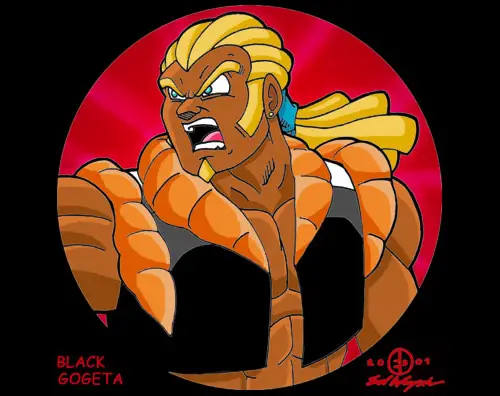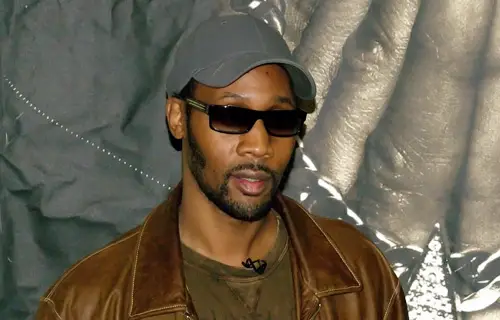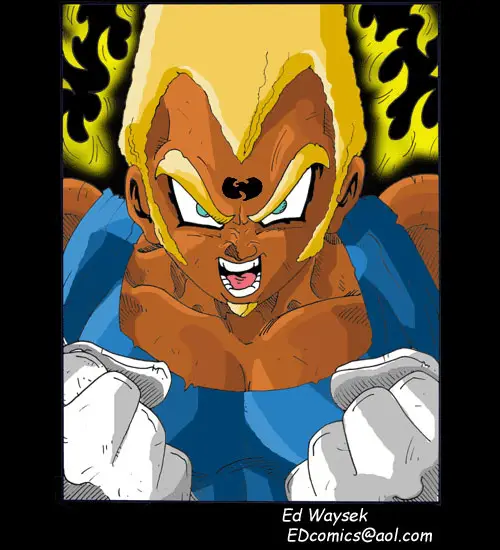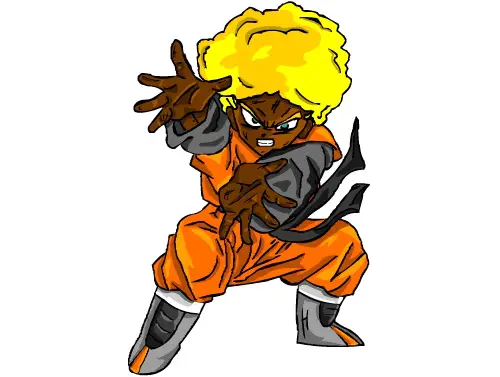“Dragon Ball Z represents the journey of the black man in America.” That’s what the RZA, founder of the Wu Tang Clan, says in his most recent book.
I recently finished reading
The Tao of Wu [aff] by the RZA because a reader of
The Black Goku article suggested I should. I’m glad I did because the book provides insight into how Dragon Ball Z may have influenced the RZA’s life.
On page 54 the RZA says that Kung Fu cinema inspired the foundation of the Wu Tang Clan and that Dragon Ball Z relates to black men in America.
He says, “Take even a cartoon like Dragon Ball Z. I mean, it’s a cartoon, but it’s one of the deepest cartoons in history. Its hero, Son Goku, starts out as a kid, begins martial arts training like San Te [the protagonist from Thirty-sixth Chamber of Shaolin”], and goes off on a quest for seven balls that unleash dragons that can grant wishes. Now, that’s a fantasy, obviously, a children’s story. But it’s also based on a sixteenth-century Chinese folk novel, about a Buddhist monk who travels to India to find the Buddhist sutras. That voyage represents a journey to enlightenment. But to me, Dragon Ball Z also represents the journey of the black man in America.”
Wait a second. An anime created in Japan based on an ancient Chinese legend represents the journey of the black man in America? That’s a provocative statement, don’t you think?
He says, “You see it more clearly as the story goes. You learn that Son Goku is part of an ancient race called the Saiyans, who come from a distant planet and were known as the fiercest warriors in the galaxy. So Son Goku has superpowers but doesn’t realize it–a head injury destroyed his memory, robbed his knowledge of self. Then one day, he gets stressed beyond his limits and Hulks out into his alter ego, Super Saiyan–a nikka with dreadlocks. (Get it?)”
That’s the first time I had ever heard a Super Saiyan described as a “nikka with dreadlocks.” Luckily, drawings of this concept already exist circa 2001!

RZA continues, “This kind of story comes up in world literature, even in the Bible: Abraham is told his seed will be lost for four hundred years, in a land not their own, not knowing who they are or where they’re from. That’s the story of the Jewish people, but it’s also the story of the black man in America.”
“So I say WE are the Saiyans; I even use the name Goku as a tag when I write. And when my hair is in an Afro? Word up: I’m Super Saiyan.”
The RZA equates black people in America with the Saiyans. He says that when he puts his hair into an afro he symbolically connects with the Saiyans, as if he is staying more true to his roots, just as Goku and Vegeta connect with their roots when fulfilling the legend of the Super Saiyan.
First the RZA creates an analogy between Goku and the Tang Monk in Journey to the West. That I completely understand and I’ve made the same correlation myself.
And then he says that the Saiyans are relatable to the black man in America and the Jewish history of exodus. That is interesting, and I don’t think the RZA is the first person to have these thoughts, but he may be the first celebrity to ever put it in writing.

The RZA - Image Copyright Wikimedia Commons
I have written extensively about how African Americans received Dragon Ball Z and assimilated it into their culture by creating
Black Goku Art, along with the other characters. To me the entire concept is an intriguing, seemingly unrecognized area of social studies that a whole Masters or Phd thesis could be written on. Alas, nobody but me and the RZA seems to take it seriously.
The RZA probably relates the persecution of the Saiyans with the persecution of the Jews and the slavery of blacks because they’re a native people from a far off place that get pulled into a foreign land and get treated as if they were lesser people, forced to do the bidding of an overlord. The persecutor could be Freeza, slave traders, or the Pharaoh of Egypt. It’s the same principle in that someone is being persecuted by an “unrighteous” authority figure.
Overall, if I understand it correctly the idea he’s trying to project is that there’s wisdom in these stories, both ancient and modern. History repeats itself again and again. Also that there’s a feeling of pain in those subjected to racism or mistreatment that is universal and timeless.
From a story telling standpoint it’s a fact that Akira Toriyama draws heavily from myths and legends in Dragon Ball, and persecution is an effective tool in the story tellers arsenal. He uses it frequently with the Saiyans. Especially for Goku and Vegeta. It’s easy to see why the RZA makes the connection.

Super Saiyan Black Vegeta with a Wu Tang Symbol on his Forehead
The RZA continues on page 62 with some philosophy.
“Today, some brothers get mad at me saying things like this. They say, “Why you fukkin’ with Chinese dudes? How come you talk to Caucasian motherfukkers like they’re brothers?” I know how they feel. And I bear witness that Allah is one, the Father of the black man, who must take his proper place as God of himself. But over the years, I came to believe the basic lesson of Mathematics is the same as that of Taoism, Buddhism, and every great spiritual path. It’s that we all have the potential to become like God.”
“Even Son Goku eventually learns how to develop chi on his own, to become Super Saiyan at will. And today I believe we’ve all got a Saiyan inside us, because God is in each of us. That’s what we’re all trying to reach, through all the chambers of our lives.”
In this section he talks about personal development and spiritual transcendence. There’s some profound things here, but to make a simplified statement on what I understand, he’s saying that Son Goku is walking the path of the divine. He trains hard, attains Super Saiyan, and then learns how “to become Super Saiyan at will.” This means he can channel “God” any time he wants, in essence becoming like God Himself.
From my perspective I’d say he is talking about human potential and the idea that each of us has the divine within ourselves, waiting to be cultivated. Buddhists refer to it as Buddha Nature: The potential to become a Buddha. Goku attains this state and then learns how to control it with a calm mind.

There’s a lot more that can be said about the RZA’s comments because they touch on so many different issues at once. The whole book was written with multifaceted, historical, philosophical statements that reflect his life story.
I don’t disagree with his statements and I can see the points he is trying to make. However, I do think they could have been made a bit more eloquently, or sensitively, or I’m not sure what. Just seems a bit rough.
I could talk about these topics for days and really don’t want to end it here, but I don’t want to dilute his message, so please tell me what you think.
Is the RZA right? Does Dragon Ball Z represent the journey of the black man in America?
only reason Vegeta insisted on calling him kakarot because of his inferioty complex
Liltle man syndrome
Even his "son" wanted to be like goku
he was a hard worker who hated the more naturally gifted goku.
 crazy talm bout some "U callin urself by ur slave name
crazy talm bout some "U callin urself by ur slave name  I named u Kakarot boy
I named u Kakarot boy 
 "
"

 "
"

 too...
too...




 to rationalize stanning a bytchmade character.
to rationalize stanning a bytchmade character. 


